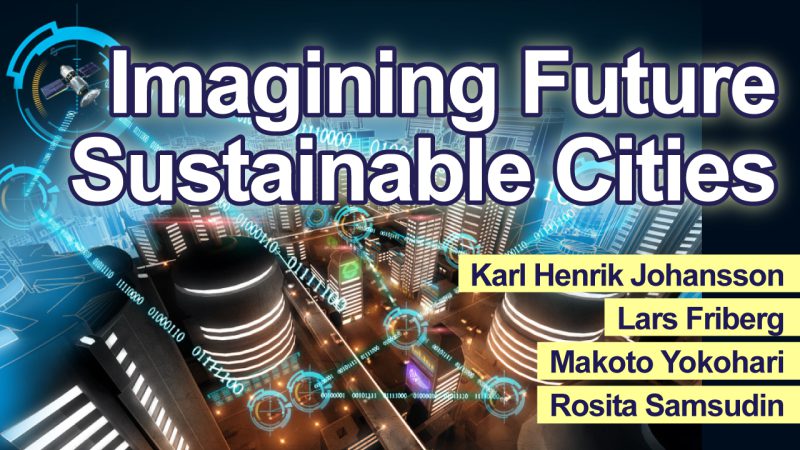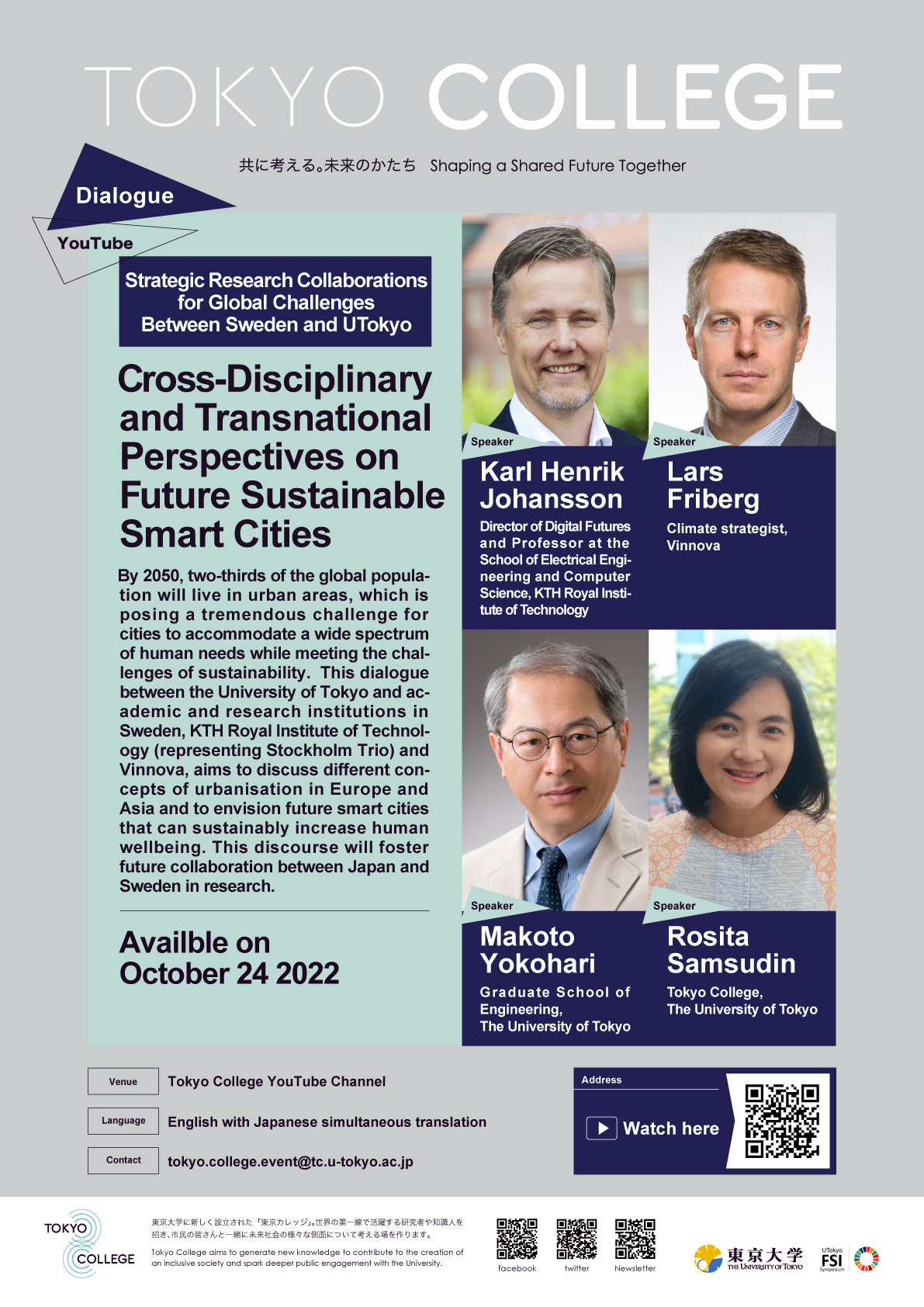“Strategic Research Collaborations for Global Challenges Between Sweden and UTokyo – Cross-Disciplinary and Transnational Perspectives on Future Sustainable Smart Cities”

| Date(s) | Available Monday, 24 October 2022 |
|---|---|
| Venue | |
| Language | English with Japanese interpretation |
| Abstract |
By 2050, two-thirds of the global population will live in urban areas, which is posing a tremendous challenge for cities to accommodate a wide spectrum of human needs while meeting the challenges of sustainability. This dialogue between the University of Tokyo and academic and research institutions in Sweden, KTH Royal Institute of Technology (representing Stockholm Trio) and Vinnova, aims to discuss different concepts of urbanisation in Europe and Asia and to envision future smart cities that can sustainably increase human wellbeing. This discourse will foster future collaboration between Japan and Sweden in research. |
| Program |
Welcome: Dr. Marcin JARZEBSKI, Tokyo College, The University of Tokyo
Presenations: “Shaping a sustainable society through digital transformation” Prof. Karl Henrik JOHANSSON, Director of Digital Futures and Professor at the School of Electrical Engineering and Computer Science, KTH Royal Institute of Technology
“Government agencies as change agents in sustainable urban transformation” Mr. Lars FRIBERG, Climate strategist, Vinnova
“From grey compact to green disperse: Future of urban-rural mixed landscapes in the periphery of Asian cities” Prof. Makoto YOKOHARI, Graduate School of Engineering, The University of Tokyo
“Raising a smart nation: A reflection from SEA countries” Dr. Rosita SAMSUDIN, Tokyo College, The University of Tokyo
Discussion |
| Speaker Profile |
Karl H. Johansson is Professor with the School of Electrical Engineering and Computer Science at KTH Royal Institute of Technology in Sweden, and Director of Digital Futures. His research focuses on networked control systems and cyber-physical systems that can be used in transportation, energy, and automation networks.
Mr. Lars Friberg works as a climate strategist in Vinnova’s sustainability team and as country manager for Vinnova’s collaboration with Japan. He has dedicated his professional life to contributing to building a more sustainable and just world and addressing the global challenge of climate change.
Dr. Makoto Yokohari is a professor in the Department of Urban Engineering and the Graduate Program in Sustainability Science (GPSS) at the University of Tokyo. His academic interests include urban planning, landscape planning, and landscape ecology.
Dr. Rosita Samsudin is a Postdoctoral Fellow at Tokyo College, the University of Tokyo. She holds a PhD degree in Architecture from the National University of Singapore. Her research centres around the issues of nature and human well-being in cities.
|
| Organized by | Tokyo College, The University of Tokyo |
| Contact | tokyo.college.event@tc.u-tokyo.ac.jp |
















